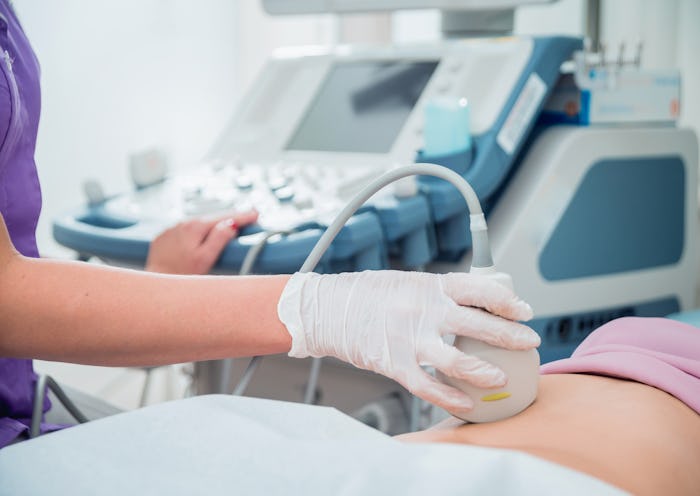Life

7 Ways To Know Before You're 25 Whether You Will Have Fertility Problems
It’s never too early to start thinking about your fertility. Whether you 100 percent want kids or think of children as a “someday . . . maybe . . . ” option, it’s a good idea to keep an eye on your reproductive health from a young age. Fortunately, there are ways to know before you’re 25 whether you will have fertility problems. Because in this case, you can never have too much knowledge.
In your late teens and early 20s, chances are there isn’t anyone hyperventilating about your “biological clock” yet. (And if that is the case, I’m sorry. That sucks.) But it’s still smart to look at your own health stats, as well as your family history, in order to get a sense of your future odds of conception. When you’re still constructing the building blocks of adult life, and thinking about everything from grad school options to alternate career choices, keeping the idea of kids in the back of your mind is smart. For some women it could be another option that may present itself one day, but for others, having a family is the ultimate goal. Keeping these things in mind may make your decision easier in the long run when the choice to have kids is more immediate. It’s a smart way to make good health choices for whatever future you pursue.
1Your Fallopian Tubes
Keeping all of your reproductive system in good working order is crucial for fertility. The fallopian tubes, which transmit your eggs from the ovaries to the uterus, may get damaged by conditions such as pelvic infections, endometriosis, or surgical scars, as WebMD said. It's something to keep in mind if you've dealt with these conditions.
2Your Hormonal Levels
Maintaining a healthy hormonal balance is easier said than done for some women. As Your Hormones said, if your body produces too much prolactin, thyroid hormones, or adrenal hormones, then this may impact your future fertility. You can check with your doctor about getting these tested.
3Your Ovulation
Is your ovulation right on time, or does it vary wildly? Ovulation disorders, such as polycystic ovary syndrome or hypothalamic dysfunction, account for about one quarter of the problems in couples who face infertility, according to the Mayo Clinic. If your periods are highly irregular, or disappear altogether, then your doctor may test for these conditions.
4Your STI History
Certain STIs can lead to fertility problems down the road. As the Centers for Disease Control and Prevention said, untreated cases of chlamydia and gonorrhea may cause pelvic inflammatory disease and hamper fertility. Your best bet is to get tested regularly, and seek immediate treatment if you do contract one of these STIs.
5Your BMI
Being over- or under-weight does not necessarily mean you will have fertility problems. But the American Society for Reproductive Medicine said that being underweight or obese may lead to ovulation problems that complicate conception. This is one issue best addressed personally by your doctor.
6Your Alcohol Intake
A glass of wine every now and again is fine, but if you're prone to more problem drinking, your ability to have children in the future may be compromised. For instance, women who consume eight or more drinks per week have experienced greater difficulty getting pregnant, as the Southern California Reproductive Center said. It might be a good idea to take a serious look at your drinking patterns before they become a problem.
7Your Thyroid
If you already have diagnosed thyroid difficulties — or hypothyroidism runs in your family — then it may be a good idea to take measures to protect your future fertility. As the Thyroid Foundation of Canada said, thyroid disease can disrupt your ovarian functions and mess with your reproductive health. Once the disease is treated, however, your fertility will likely be restored.